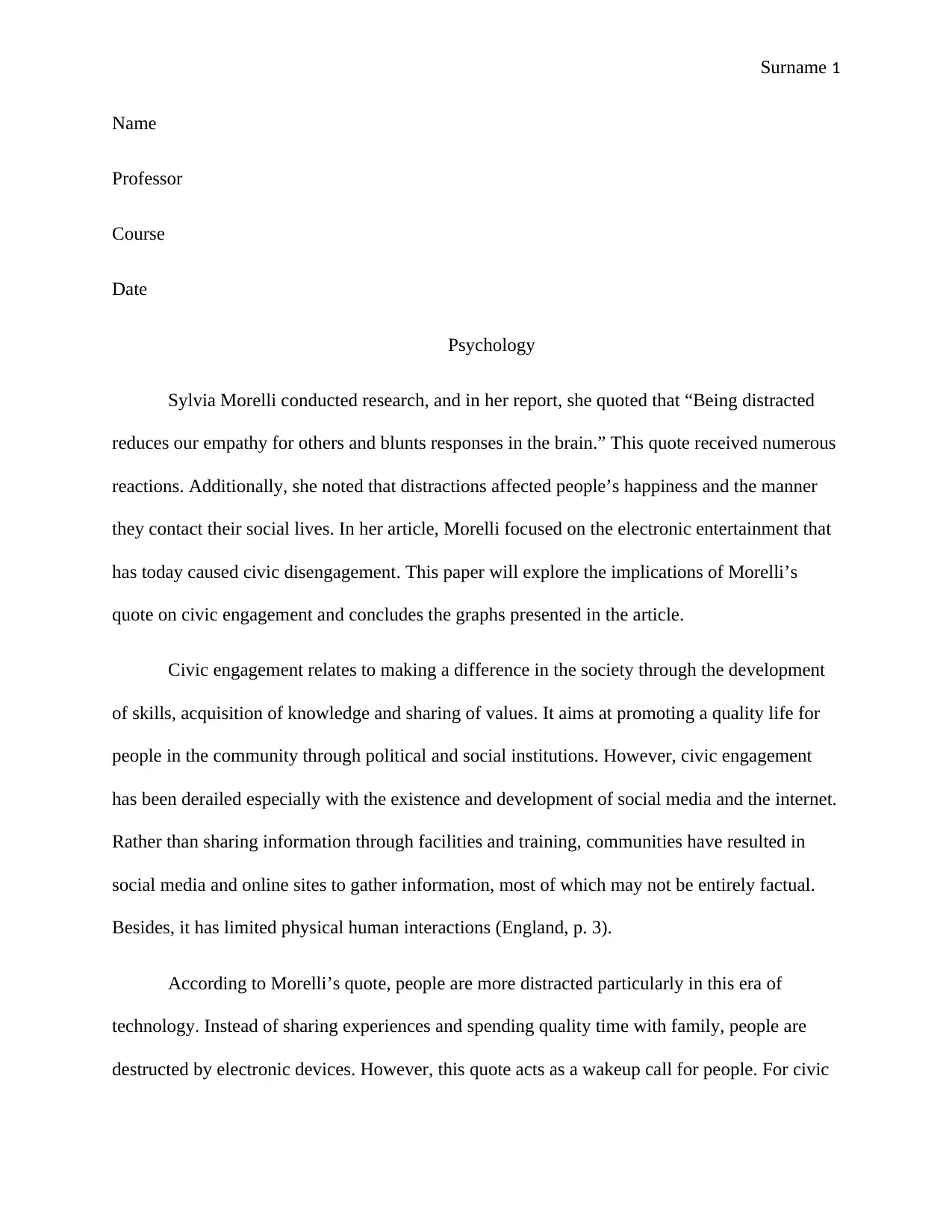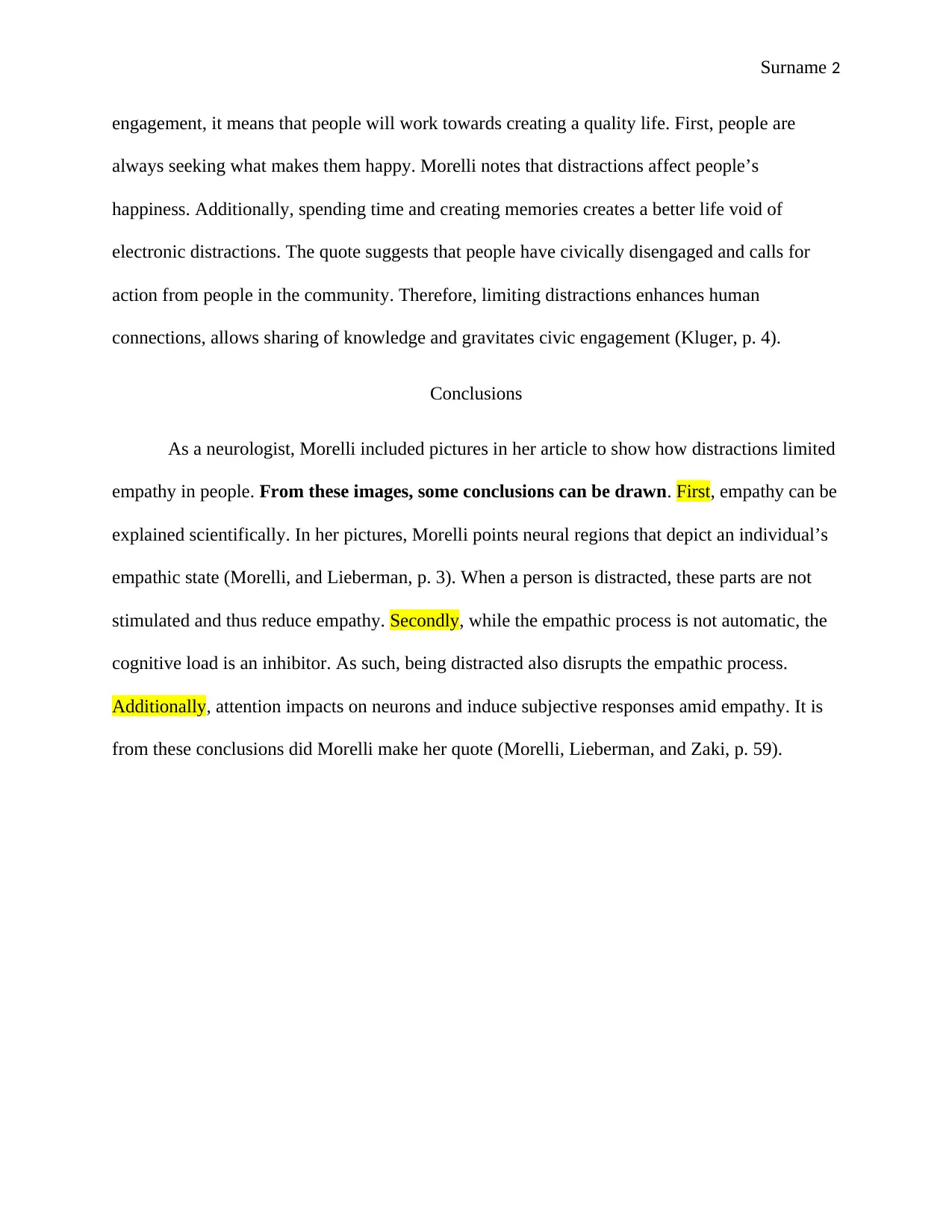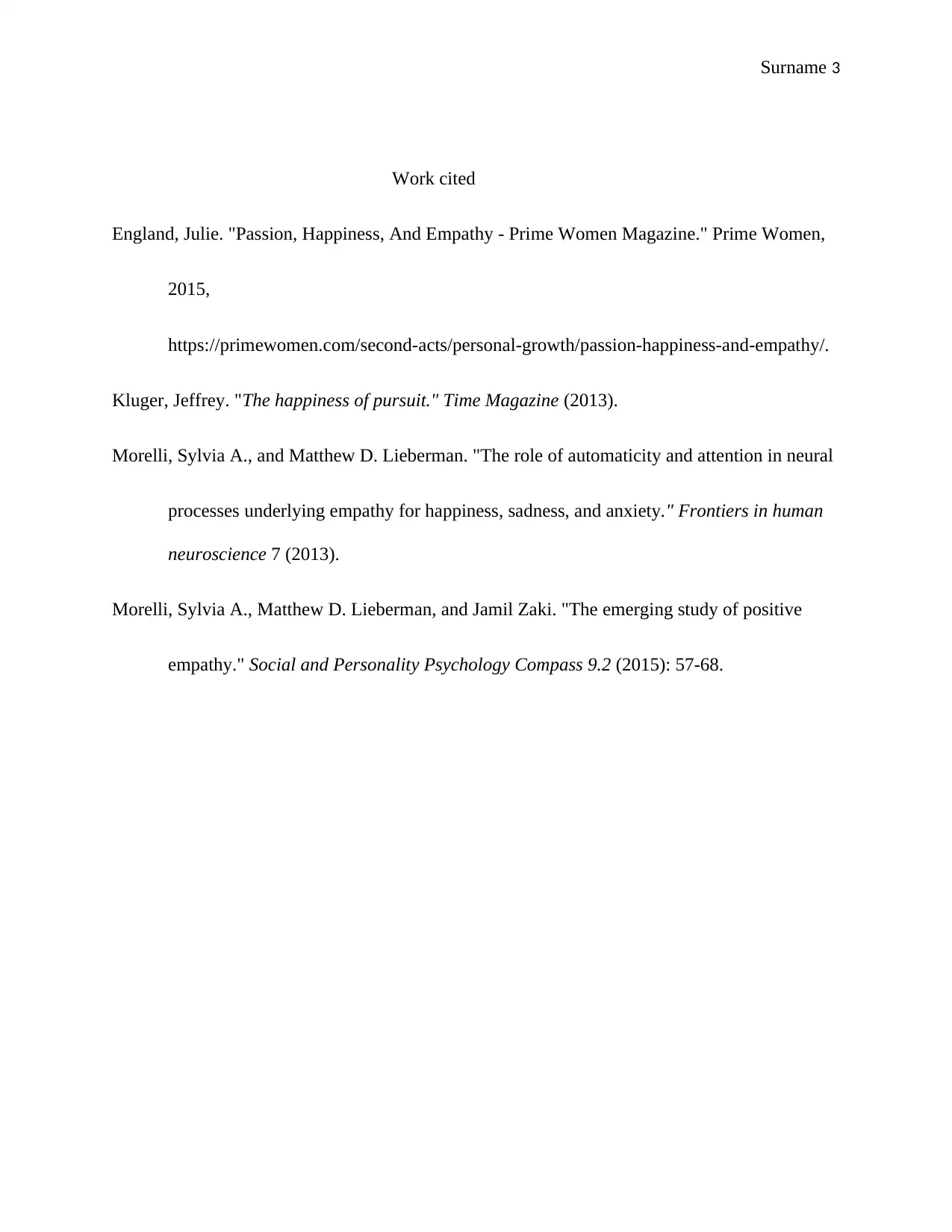Psychology Report: Distraction, Empathy, and Civic Engagement Analysis
VerifiedAdded on 2020/05/04
|3
|613
|54
Report
AI Summary
This report analyzes the impact of distraction on empathy and civic engagement, drawing on Sylvia Morelli's research. It explores how electronic devices and social media contribute to disengagement, affecting happiness and human connections. The report examines the neural processes underlying empathy and how distractions inhibit them. It also discusses the implications of Morelli's findings for civic life, emphasizing the importance of limiting distractions to foster meaningful interactions and promote a better quality of life. The study highlights the role of attention and cognitive load in the empathic process and concludes that distraction reduces empathy. The paper also mentions how the use of social media and online sites has limited physical human interactions.
1 out of 3





![[object Object]](/_next/static/media/star-bottom.7253800d.svg)